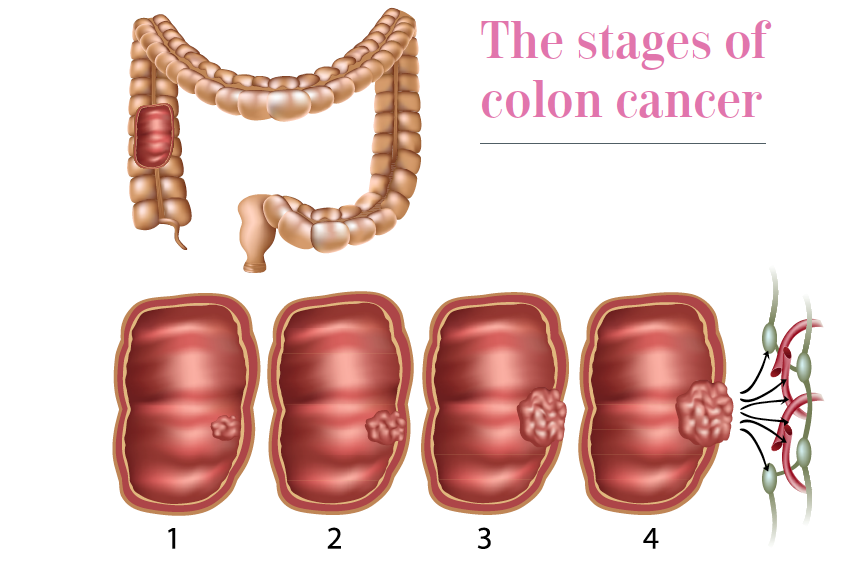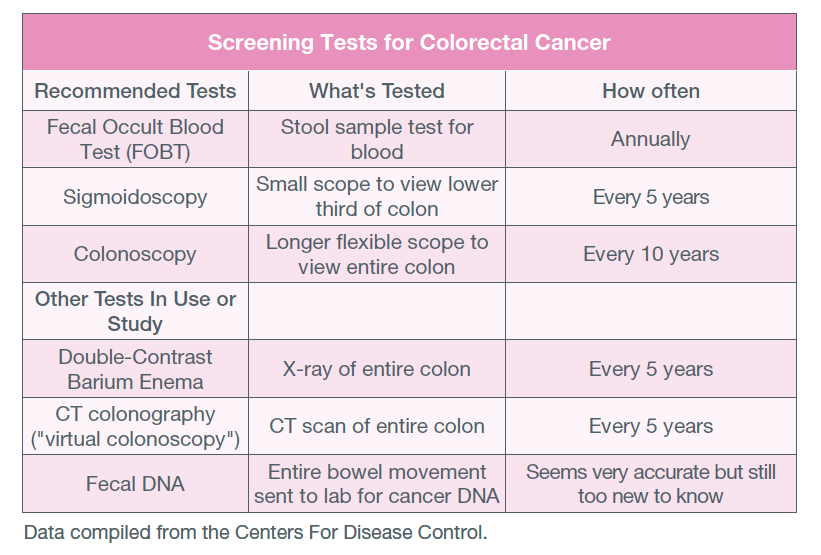March is Colon Cancer Awareness month and reminds us that colorectal cancer is the second leading cancer killer in the United States
 But unlike almost every other cancer, colorectal cancer is often preventable. That’s because it usually develops in benign polyps that turn into cancer cells over time. If the benign polyps are found before the cells become malignant, the polyp can be removed and the colon cancer prevented. Often times a person does not know they have a polyp, which is why screening tests are important.
But unlike almost every other cancer, colorectal cancer is often preventable. That’s because it usually develops in benign polyps that turn into cancer cells over time. If the benign polyps are found before the cells become malignant, the polyp can be removed and the colon cancer prevented. Often times a person does not know they have a polyp, which is why screening tests are important.
The most common symptoms are blood in or on your stool, persistent stomach pains or cramps, or unexplained weight loss. But many times there are no symptoms at all until it is already an advanced disease. That is why it is so important for men and women to have their stool tested for blood each year after age 50. This can be done with a Stool Test called a High-Sensitivity FOBT (Fecal Occult Blood Test).
It’s also essential to have a colonoscopy at age 50 and then every ten years after that unless polyps are found or there is a family history of colorectal cancer, or you have inflammatory bowel disease or an inherited condition such as familial adenomatous polyposis or hereditary nonpolyposis colorectal cancer (Lynch syndrome). In that case you would have a colonoscopy done earlier and more often. The test can be done with mild sedation so it won’t hurt. It takes about 30 to 60 minutes to perform and recovery is about 1 to 2 hours. You will have to drink a liquid medication the night before to empty out the stool so the doctor is able to see the lining of your intestines.
There is another test called virtual colonoscopy or CT colonography. It’s done using a CT x-ray instead of a telescope. You still need to take medicine the night before to empty out the stool. It’s newer and may not be as accurate. If a polyp is seen on the virtual colonoscopy, you will need a colonoscopy to remove it.
Many people are either afraid or embarrassed to have a colonoscopy. I know I didn’t want one either. But in fact, I slept through it and it wasn’t bad at all. To help people understand colonoscopy, I wrote this song called “Light at The End of Your Tunnel.” The words to the video are on the previous page.






